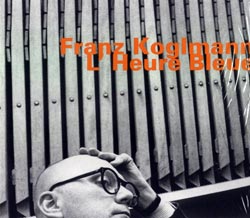
In Stock
Quantity in Basket: None
Log In to use our Wish List
Shipping Weight: 3.00 units
EU & UK Customers:
Discogs.com can handle your VAT payments
So please order through Discogs
Sample The Album:
Monoblue Quartet:
Franz Koglmann-trumpet, flugelhorn
Tony Coe-clarinet, tenor saxophone
Burkhard Stangl-guitar
Klaus Koch-bass
Duo Koglmann/Mengelberg:
Franz Koglmann-flugelhorn
Misha Mengelberg-piano
Click an artist name above to see in-stock items for that artist.
UPC: 752156057123
Label: Hatology
Catalog ID: Hatology571
Squidco Product Code: 9859
Format: CD
Condition: New
Released: 2003
Country: Switzerland
Packaging: Cardstock Gatefold Sleeve
Recorded by Peter Pfister on April 15-17, 1991 at Haus der Begegnung Mariahilf, Vienna, Austria and on March 20-21, 1991 at Foundation Artist House, Boswil, Switzerland.
"All of the music on L'Heure Bleue has aged well. Several jazz critics have cited the album as Koglmann's best, and while I might disagree with such a ranking (how can there be a "best" that excludes the Pipetet?) I do think it speaks to the rarefied flow that is achieved in these performances, and to the way in which they cross lines (white and otherwise) that musicians from both Europe and the US have attempted to blur with greater frequency in the succeeding years."-Bob Blumenthal, from the liner notes
Artist Biographies
• Show Bio for Franz Koglmann "Austrian trumpeter Franz Koglmann (1947) debuted in the 1970s. Bill Dixon's Opium contained the 17-minute For Franz (august 1976) performed by a quintet with two trumpets (Dixon and Koglmann), tenor saxophone, bass (Alan Silva) and percussion. The rest of the album (recorded between december 1975 and november 1976), contains compositions by Koglmann and features Franz Koglmann on flugelhorn and Steve Lacy on soprano sax except one piece that is an early electronic experiment with Gerd Geier on computer and Toni Michlmayr on bass. Koglmann founded the Chamber Jazz Emsembles Pipetet that debuted with Schlaf Schlemmer Schlaf Magritte (december 1984), a vehicle for his brainy scores that embedded everything from Arnold Schoenberg's dodecaphony to swing to free jazz, all done with a Dadaist attitude worthy of Pere Ubu (notably in the four-movement Tanzmusick Fuer Paszstueckem). Evolving through fragmented albums such as Ich (october 1986), his manyfold art of composition and deconstruction bloomed on the nine-movement suite The Use of Memory (october 1990), almost a colossal compendium of 20th century music. Orte Der Geometrie (november 1988) featured alto saxophonist Guillermo Gregorio, soprano saxophonist Roberto Ottaviano, Jean-Christophe Mastnak on French horn, bassist Klaus Koch, trombonist Rudolf Ruschel, tuba player Raoul Herget, clarinetist Martin Schelling, pianists Ran Blake and Robert Michael Weiss, oboe player Mario Arcari, guitarist Burkhard Stangl, drummer Fritz Hauser, and "conductor" Gustav Bauer. A White Line (november 1989) was a collaboration with an ensemble conducted by Gustav Bauwer: Jean-Christoph Mastnak (flugelhorn), Raoul Herget (tuba), Mario Arcari (oboe), Tony Coe (clarinet and tenor sax), Helmut Federle (accordion), Paul Bley (piano), Burkhard Stangl (guitar), Klaus Koch (bass), and Gerry Hemingway (drums). A theorist not so much of post-modern but of post-classical music, Koglmann continued to rehearse a cryptic vision of music on albums such as L'Heure Bleue (april 1991) only to unleash another massive, powerful reconceptualization of the century's music with Cantos I-IV (october 1992) for orchestrated improvisers. Koglmann had coined a moving music of contradictions, misunderstandings and, ultimately, of mistakes. His monumental and demented synthesis of improvised and composed music continued on O Moon My Pin Up (march 1997), explicitly dedicated to poet Ezra Pound. After Make Believe (november 1998) for a quintet, he also ventured outside chamber music with the electroacoustic opera Fear Death By Water (march 2003) and the "imaginary play" Let's Make Love (september 2004). One of the greatest composers of his generation, Koglmann metabolized the past in order to create the future. Lo-lee-ta (2009) was inspired by Vladimir Nabokov's texts and performed by the Monoblue Quartet (Tony Coe on clarinet/alto saxophone, Ed Renshaw on guitar, Peter Herbert on bass). Join! (Orf, 2014), the first album in five years, is a sci-fi opera, premiered in may 2013, for seven opera singers and a chamber ensemble. G(ood)luck (april 2015) documents a trio with Mario Arcari on English horn and oboe, and Attila Pasztor on cello." ^ Hide Bio for Franz Koglmann • Show Bio for Tony Coe "Anthony George Coe (born 29 November 1934) is an English jazz musician who plays clarinet, bass clarinet, flute, and soprano, alto, and tenor saxophones. Coe began his performing career playing with Humphrey Lyttelton's band from 1957 to 1962. In 1965 he was invited to join Count Basie's band ('I'm glad it didn't come off - I would have lasted about a fortnight') and has since played with the John Dankworth Orchestra, the Kenny Clarke-Francy Boland Big Band, Derek Bailey's free improvisation group Company, Stan Tracey, Michael Gibbs, Stan Getz, Dizzy Gillespie, and Bob Brookmeyer, and performed under Pierre Boulez as well as leading a series of groups of his own, including Coe Oxley & Co with drummer Tony Oxley. He played clarinet on Paul McCartney's recording of "I'll Give You a Ring" released in 1982 and saxophone on John Martyn's 1973 album Solid Air. Coe has also worked with the Matrix, a small ensemble formed by clarinettist Alan Hacker, with a wide-ranging repertoire of early, classical, and contemporary music, the Danish Radio Big Band, Metropole Orchestra and Skymasters in the Netherlands. Coe has recorded on soundtracks for several films, including Superman II, Victor/Victoria, Nous irons tous au paradis, Leaving Las Vegas, Le Plus beau métier du monde and The Loss of Sexual Innocence. He also composed the film score for Camomille. In 1975 a grant from the Arts Council enabled him to write Zeitgeist, a large-scale orchestral work fusing jazz and rock elements with techniques from European Art Music. He received an honorary degree and the Danish Jazzpar Prize (1995)." ^ Hide Bio for Tony Coe • Show Bio for Burkhard Stangl "Guitarist and composer Burkhard Stangl works in the fields of improvisation, electronica and contemporary classical. Among many others he played, recorded and collaborated with musicians / groups / composers /artists like Anestis Logothetis, Franz Koglmann, Radu Malfatti, Gunter Schneider, John Butcher, Franz Hautzinger, Taku Sugimoto, Taku Unami, Olga Neuwirth, Polwechsel, Gene Coleman, Kevin Drumm, dieb13, Billy Roisz, Martin Siewert, Boris Hauf, Gustav Deutsch, Oswald Egger, Uchihashi Kazuhisa, Katharina Klement, Christof Kurzmann, Kai Fagaschinski, Anna Zaradny, Robert Piotrowicz, Patrick K.-H., Klangforum Wien, efzeg, Christian Fennesz, Barbara Romen, Steve Bates, Katharina Ernst, Juan José Rivas, Fernando Vigueras, Mario de Vega, Attila Faravelli, and, last but not least, with his partner in life and art Angélica Castelló." ^ Hide Bio for Burkhard Stangl • Show Bio for Franz Koglmann "Austrian trumpeter Franz Koglmann (1947) debuted in the 1970s. Bill Dixon's Opium contained the 17-minute For Franz (august 1976) performed by a quintet with two trumpets (Dixon and Koglmann), tenor saxophone, bass (Alan Silva) and percussion. The rest of the album (recorded between december 1975 and november 1976), contains compositions by Koglmann and features Franz Koglmann on flugelhorn and Steve Lacy on soprano sax except one piece that is an early electronic experiment with Gerd Geier on computer and Toni Michlmayr on bass. Koglmann founded the Chamber Jazz Emsembles Pipetet that debuted with Schlaf Schlemmer Schlaf Magritte (december 1984), a vehicle for his brainy scores that embedded everything from Arnold Schoenberg's dodecaphony to swing to free jazz, all done with a Dadaist attitude worthy of Pere Ubu (notably in the four-movement Tanzmusick Fuer Paszstueckem). Evolving through fragmented albums such as Ich (october 1986), his manyfold art of composition and deconstruction bloomed on the nine-movement suite The Use of Memory (october 1990), almost a colossal compendium of 20th century music. Orte Der Geometrie (november 1988) featured alto saxophonist Guillermo Gregorio, soprano saxophonist Roberto Ottaviano, Jean-Christophe Mastnak on French horn, bassist Klaus Koch, trombonist Rudolf Ruschel, tuba player Raoul Herget, clarinetist Martin Schelling, pianists Ran Blake and Robert Michael Weiss, oboe player Mario Arcari, guitarist Burkhard Stangl, drummer Fritz Hauser, and "conductor" Gustav Bauer. A White Line (november 1989) was a collaboration with an ensemble conducted by Gustav Bauwer: Jean-Christoph Mastnak (flugelhorn), Raoul Herget (tuba), Mario Arcari (oboe), Tony Coe (clarinet and tenor sax), Helmut Federle (accordion), Paul Bley (piano), Burkhard Stangl (guitar), Klaus Koch (bass), and Gerry Hemingway (drums). A theorist not so much of post-modern but of post-classical music, Koglmann continued to rehearse a cryptic vision of music on albums such as L'Heure Bleue (april 1991) only to unleash another massive, powerful reconceptualization of the century's music with Cantos I-IV (october 1992) for orchestrated improvisers. Koglmann had coined a moving music of contradictions, misunderstandings and, ultimately, of mistakes. His monumental and demented synthesis of improvised and composed music continued on O Moon My Pin Up (march 1997), explicitly dedicated to poet Ezra Pound. After Make Believe (november 1998) for a quintet, he also ventured outside chamber music with the electroacoustic opera Fear Death By Water (march 2003) and the "imaginary play" Let's Make Love (september 2004). One of the greatest composers of his generation, Koglmann metabolized the past in order to create the future. Lo-lee-ta (2009) was inspired by Vladimir Nabokov's texts and performed by the Monoblue Quartet (Tony Coe on clarinet/alto saxophone, Ed Renshaw on guitar, Peter Herbert on bass). Join! (Orf, 2014), the first album in five years, is a sci-fi opera, premiered in may 2013, for seven opera singers and a chamber ensemble. G(ood)luck (april 2015) documents a trio with Mario Arcari on English horn and oboe, and Attila Pasztor on cello." ^ Hide Bio for Franz Koglmann • Show Bio for Misha Mengelberg "Misha Mengelberg (5 June 1935 - 3 March 2017) was a Dutch jazz pianist and composer. A prominent figure in post-WWII European Jazz, Megelberg is known for his forays into free improvisation, for bringing humor into his music, and as a leading interpreter of songs by fellow pianists Thelonious Monk and Herbie Nichols. Mengelberg was born in Kiev, Ukrainian SSR, the son of the Dutch conductor Karel Mengelberg (born Karel Willem Joseph Mengelberg; 18 July 1902, Utrecht - 11 July 1984, Amsterdam) and grand-nephew of conductor Willem Mengelberg. Karel Mengelberg was a Dutch composer and conductor, who worked in Berlin, Barcelona, Kiev and Amsterdam. A notable work of his was 'Catalunya Renaixent', written for the Banda Municipal of Barcelona in 1934. Misha's family moved back to the Netherlands in the late 1930s and he began learning the piano at age five. Mengelberg briefly studied architecture before entering the Royal Conservatory in The Hague, where he studied music from 1958-64. While there he won the first prize at a jazz festival in Loosdrecht and became associated with Fluxus. His early influences included Thelonious Monk, Duke Ellington and John Cage, whom he heard lecture at Darmstadt. Mengelberg won the Gaudeamus International Composers Award in 1961. Among his first recordings was among Eric Dolphy's last, Last Date (1964). Also on that record was the drummer Han Bennink, and the two of them, together with saxophonist Piet Noordijk, formed a quartet which had a number of different bassists, and which played at the Newport Jazz Festival in 1966. In 1967 he co-founded the Instant Composers Pool, an organisation which promoted avant garde Dutch jazz performances and recordings, with Bennink and Willem Breuker. He was co-founder of STEIM in Amsterdam in 1969. Mengelberg played with a large variety of musicians. He often performed in a duo with fellow Dutchman Bennink, with other collaborators including Derek Bailey, Peter Brötzmann, Evan Parker, Anthony Braxton, and (on the flip side of a live recording with Dolphy) his pet parrot. He was also one of the earliest exponents of the work of the once-neglected pianist Herbie Nichols. He also wrote music for others to perform (generally leaving some room for improvisation) and oversaw a number of music theatre productions, which usually included a large element of absurdist humour. A 2006 DVD release, Afijn (ICP/Data), is a primer on Mengelberg's life and work, containing an 80-minute documentary and additional concert footage.[citation needed] Mengelberg died in Amsterdam on 3 March 2017, aged 81, from undisclosed causes." ^ Hide Bio for Misha Mengelberg
11/18/2024
Have a better biography or biography source? Please Contact Us so that we can update this biography.
11/18/2024
Have a better biography or biography source? Please Contact Us so that we can update this biography.
11/18/2024
Have a better biography or biography source? Please Contact Us so that we can update this biography.
11/18/2024
Have a better biography or biography source? Please Contact Us so that we can update this biography.
11/18/2024
Have a better biography or biography source? Please Contact Us so that we can update this biography.
Track Listing:
1. Leopard Lady
2. Moon Dreams
3. My Old Flame
4. Monoblue
5. Night and Day
6. Baite
7. It Isn't Easy
8. Heure Bleue
9. Slow Fox
10. For Bix
11. Blue Angel
12. Black Beauty
13. Nachts
Hat Art
Improvised Music
Jazz
European Improvisation, Composition and Experimental Forms
Octet Recordings
Search for other titles on the label:
Hatology.


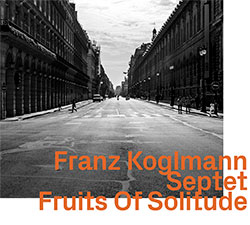
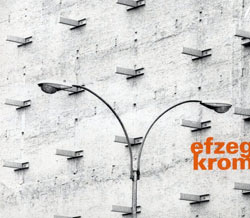
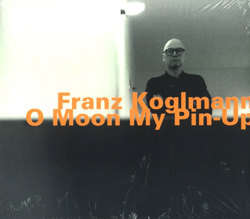
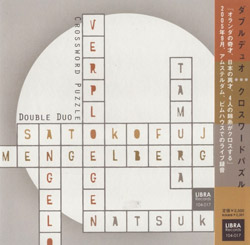
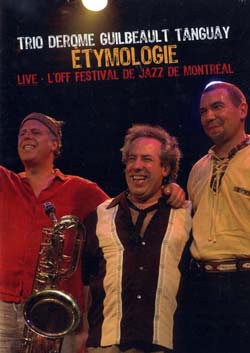


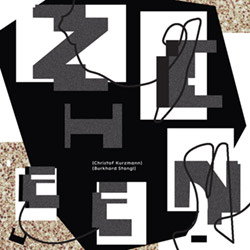

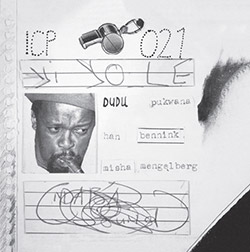




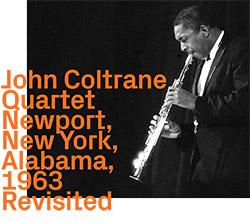
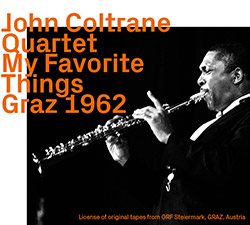
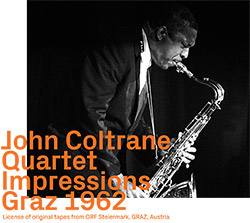



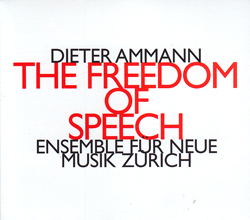

















![Barker / Parker / Irabagon: Bakunawa [VINYL]](https://www.teuthida.com/productImages/misc4/35533.jpg)
![Blaser, Samuel / Marc Ducret / Peter Bruun: Dark Was The Night, Cold Was The Ground [VINYL 10-inch]](https://www.teuthida.com/productImages/misc4/35492.jpg)










![Warren, Kenny (Warren / Hoffman / Ellman): Sweet World [VINYL]](https://www.teuthida.com/productImages/misc4/35451.jpg)


![Blake, Ran / Dave Knife Fabris: Live Amsterdam 2006, First Visit [CD + POSTCARDS]](https://www.teuthida.com/productImages/misc4/35275.jpg)
![Sanna, Claudio: Compositori Sardi Contemporanei II [2 CDs]](https://www.teuthida.com/productImages/misc4/35317.jpg)












![Nevai, Nandor: <<The PRICE of FRONTIER>> Book 1: FULK [BOOK + 4 CDs]](https://www.teuthida.com/productImages/misc4/35464.jpg)
![Nevai, Nandor: <<The PRICE of FRONTIER>> Book 2: MARTIAL [BOOK + 4 CDs]](https://www.teuthida.com/productImages/misc4/35465.jpg)
![Nevai, Nandor: <<The PRICE of FRONTIER>> Book 3: JASSOM [BOOK + 4 CDs]](https://www.teuthida.com/productImages/misc4/35466.jpg)
![Nevai, Nandor: <<The PRICE of FRONTIER>> Book 4: HARD-WON [BOOK + 4 CDs]](https://www.teuthida.com/productImages/misc4/35467.jpg)






![DNS: Taking Big Bites Of The Khandas Three Cafes Deep [2 CDs]](https://www.teuthida.com/productImages/misc4/35334.jpg)




![Cleaver, Gerald: The Process [VINYL]](https://www.teuthida.com/productImages/misc4/34966.jpg)



![Alva Noto: HYbr:ID II [VINYL 2 LPs]](https://www.teuthida.com/productImages/misc4/35201.jpg)

![Baron, Derek / Luke Martin: Distinct and Concealed [CASSETTE + DOWNLOAD]](https://www.teuthida.com/productImages/misc4/35079.jpg)

![Lyle, Erica Dawn : Colonial Motels [CASSETTE + DOWNLOAD]](https://www.teuthida.com/productImages/misc4/35080.jpg)







![Alva Noto: HYbr:ID III [VINYL 2 LPs]](https://www.teuthida.com/productImages/misc4/35011.jpg)
![Kubisch, Christina / Trondheim Voices: Stromsanger 2022 For Six Voices And Electromagnetic Waves [VINYL]](https://www.teuthida.com/productImages/misc4/34628.jpg)








![Zurria, Manuel: Fame di Vento [3 CDs]](https://www.teuthida.com/productImages/misc4/35167.jpg)

![Granberg, Magnus / Nattens Inbrott / Skogen: Holde Traume, Kehret Wieder! [2 CDs]](https://www.teuthida.com/productImages/misc4/35038.jpg)
![Frey, Jurg: Outermost Melodie [2 CDs]](https://www.teuthida.com/productImages/misc4/35039.jpg)

![Pavone, Jessica: Reverse Bloom [VINYL]](https://www.teuthida.com/productImages/misc4/34895.jpg)




![Modney (Modney / Wooley / Gentile / Roberts / Pluta / Symthe / ...): Ascending Primes [2 CDs]](https://www.teuthida.com/productImages/misc4/34852.jpg)








![Elephant9 with Terje Rypdal: Catching Fire [VINYL 2 LPs]](https://www.teuthida.com/productImages/misc4/35355.jpg)
![Deerlady (Obomsawin, Mali / Magdalena Abrego): Greatest Hits [VINYL]](https://www.teuthida.com/productImages/misc4/34876.jpg)




![Haino, Keiji: Black Blues [2 CDs]](https://www.teuthida.com/productImages/misc4/35109.jpg)



![Surplus 1980: Illusion of Consistency [CD]](https://www.teuthida.com/productImages/misc4/35069.jpg)
![Staiano, Moe: Away Towards the Light [VINYL + DOWNLOAD]](https://www.teuthida.com/productImages/misc4/35037.jpg)




![Caveira (Gomes / Sousa / Abras / Ferrandini): Ficar Vivo [VINYL]](https://www.teuthida.com/productImages/misc4/34643.jpg)
![Gregg, J. J. / David Van Auken: Lunar Prairie [CD w/ DOWNLOAD]](https://www.teuthida.com/productImages/misc4/34611.jpg)

![Coultrain: Mundus [VINYL]](https://www.teuthida.com/productImages/misc4/32439.jpg)
![Mattin: Songbook #6 [VINYL]](https://www.teuthida.com/productImages/misc4/27317.jpg)
![Punkappella: Wake Up [7-inch VINYL]](https://www.teuthida.com/productImages/misc4/17519.jpg)
![Residents, The: WARNING: UNiNC.: Live And Experimental Recordings 1971-1972 [VINYL 2 LPs]](https://www.teuthida.com/productImages/misc4/31521.jpg)
![Coultrain: Phantasmagoria [VINYL]](https://www.teuthida.com/productImages/misc4/30142.jpg)
![Lennon, Sean Ono: Asterisms [VINYL]](https://www.teuthida.com/productImages/misc4/34517.jpg)

![Rotem Geffen: The Night Is The Night [VINYL]](https://www.teuthida.com/productImages/misc4/34631.jpg)
![Coley, Byron: Dating Tips for Touring Bands [VINYL]](https://www.teuthida.com/productImages/misc4/17906.jpg)

![Lost Kisses: My Life is Sad & Funny [DVD]](https://www.teuthida.com/productImages/misc4/lostKissesDVD.jpg)